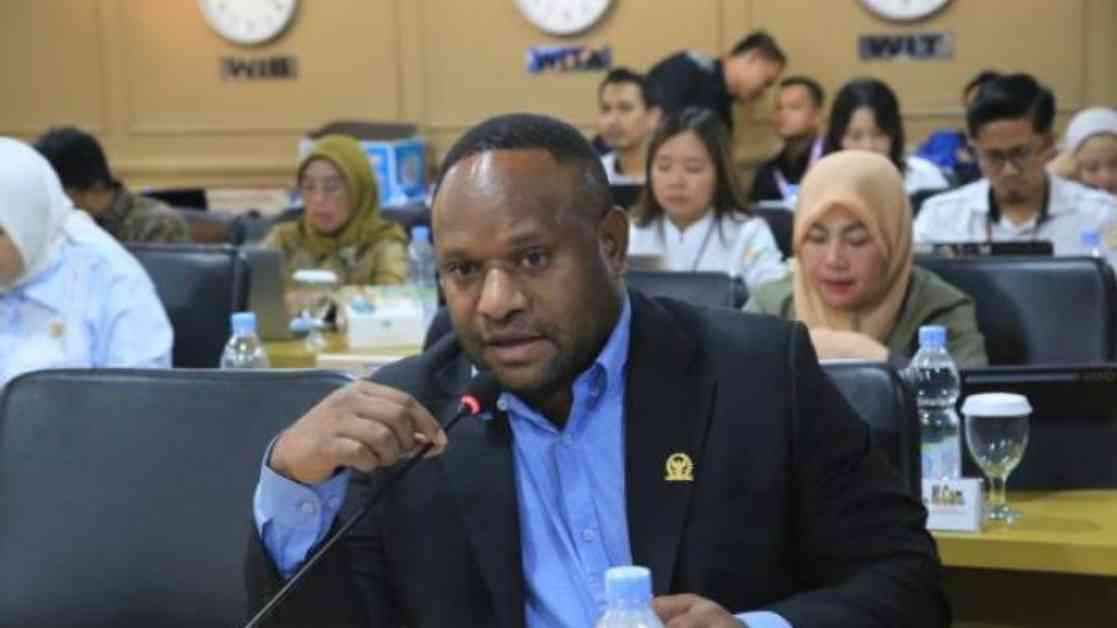Efficient Budgeting Strategies in Papua: A Call for Review by DPD Member Nelson Wenda
In a recent meeting at the parliamentary complex in Senayan, Jakarta, on Tuesday, February 18, 2025, Nelson Wenda, a member of the Committee IV of the Regional Representative Council (DPD) of Indonesia, raised concerns about the budget efficiency policies being implemented across all local governments in Papua. Wenda expressed his views on how these strategies could potentially hinder the progress of development in this special autonomy region.
Questioning the effectiveness of Presidential Instruction (Inpres) Number 1 of 2025 and Minister of Finance Decree Number 29 of 2025, which outline budget efficiency measures, Wenda highlighted the potential contradictions with Presidential Regulation Number 24 of 2023 regarding the acceleration of development in Papua. He emphasized that the budget efficiency policies might impede the much-needed infrastructure development for the people of Papua.
With the issuance of the Inpres on budget efficiency, there are concerns that it could obstruct and delay the acceleration of infrastructure development in the region, as stated by Wenda. As a result, he urged the Ministry of Finance to reassess these policies to ensure they do not hinder the government’s efforts to address the various sectors’ disparities in Papua.
Given that Papua is a special autonomy region striving to catch up in all sectors, Wenda stressed the need for an increase in the existing budgets in the region. He also conveyed several community aspirations, emphasizing the importance of the Free Nutritious Meal program, which should be delivered directly to parents and prepared at home. Additionally, he highlighted the necessity for improvements in educational facilities, such as laboratories, and the construction of the government office of the Governor of Papua Highlands.
As Senator Wenda articulated the demands of the people from the Papua Highlands region, he shed light on the community’s request for the Free Nutritious Meal program to be distributed directly to parents and prepared by them at home. These initiatives aim to address the nutritional needs of the local population while also enhancing educational and governmental infrastructure in the region.
Expert Insights on Budget Efficiency in Papua
Expert Analysis on Economic Impacts
Economists and financial analysts have weighed in on the potential consequences of the budget efficiency policies in Papua. Dr. Maya Susanto, a renowned economist specializing in regional development, emphasized the delicate balance required between fiscal responsibility and developmental progress. She highlighted the need for a nuanced approach that considers the unique challenges and opportunities in Papua to ensure sustainable growth and equitable resource allocation.
Legal Perspectives on Budgeting Policies
Legal experts have also provided insights into the legal implications of the budget efficiency measures in Papua. Prof. Andi Kusuma, a constitutional law scholar, pointed out the importance of aligning budgeting policies with the overarching legal framework, including presidential regulations and ministerial decrees. He underscored the necessity of ensuring coherence and consistency in governmental directives to avoid potential conflicts and obstacles to effective governance.
In conclusion, the call for a review of budget efficiency strategies in Papua by DPD member Nelson Wenda reflects broader concerns about balancing fiscal prudence with developmental imperatives in special autonomy regions. As policymakers and stakeholders navigate these complex issues, the need for a comprehensive and inclusive approach to budgeting becomes increasingly apparent. By engaging in dialogue, reassessing policies, and incorporating diverse perspectives, the path towards sustainable and equitable development in Papua can be paved for the benefit of all its residents.






















